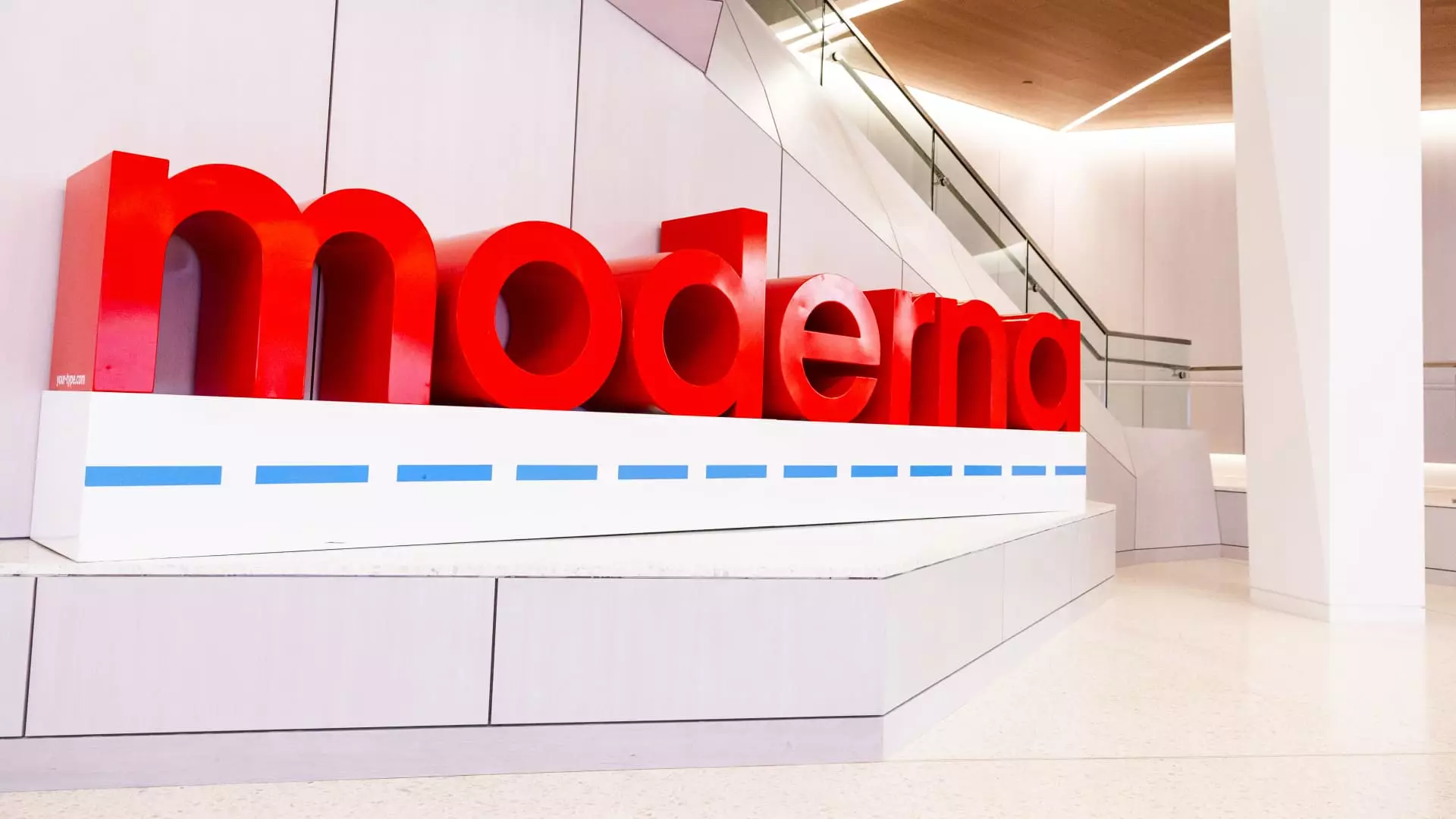In a recent disclosure, Moderna has significantly adjusted its sales forecast for 2025, announcing a decrease of about $1 billion. This update comes as the biotechnology firm grapples with challenges that may linger into the latter part of the year. The newly projected revenue range of $1.5 billion to $2.5 billion primarily hinges on two key products: its Covid vaccine and a recently launched vaccine targeting respiratory syncytial virus (RSV). This revision marks a substantial change from the previous estimate of $2.5 billion to $3.5 billion defined last September.
The announcement sent waves through the market, with Moderna’s stocks plummeting by 18% in premarket trading. Similar sentiments were echoed across other vaccine manufacturers. Companies like Novavax, BioNTech, and Pfizer also experienced declines, reflecting a broader apprehension among investors concerning the future of vaccine sales. Jamey Mock, Moderna’s Chief Financial Officer, discussed upcoming uncertainties and the need for the company to brace against potential setbacks in the market.
During an interview, Mock outlined four specific factors contributing to the projected decline in sales. Firstly, Moderna faces growing competition within the Covid vaccine sector. Data reveals that Moderna’s market share in the retail sector fell from 48% in 2023 to 40% by the end of 2024, indicating an alarming trend of downfall. Notably, the announcement of Sanofi’s co-commercialization of Novavax’s Covid vaccine could further undermine Moderna’s position, intensifying competitive pressures.
Secondly, vaccination rates have shown a worrisome reduction, with overall uptake in the U.S. retail market decreasing by approximately 7% in fall 2024 relative to the previous year. This trend could deter consumers from seeking vaccinations, further impacting sales figures for Moderna’s products.
Moreover, uncertainty looms over manufacturing contracts with several countries. These delays could disrupt the company’s supply chain and affect its ability to meet demand. Additionally, ambiguity surrounding recommendations from the Centers for Disease Control and Prevention (CDC) regarding RSV revaccination adds another layer of complexity and potential risk for the company’s future sales.
Despite these challenges, Moderna is pursuing avenues to streamline its operations and cut costs. The company aims to reduce cash expenses for 2025 by $1 billion, with further plans to cut an additional $500 million in 2026. This proactive approach signifies Moderna’s commitment to maintaining financial health in the face of declining sales forecasts. Mock assured stakeholders of their focus on safeguarding cash reserves while continuing to invest in innovation and expanding the product portfolio.
In light of these changes, Moderna is determined to diversify its offerings, with ambitious goals to secure 10 new product approvals over the next three years. Among these are anticipated innovations, including a combination vaccine targeting Covid and influenza, which may attract considerable public interest.
Moderna’s recent announcement and corresponding stock response serve as a litmus test for the broader vaccine market. As the company pivots from its once-dominant position in Covid vaccination, the sustainability of its mRNA technology and future product offerings will play a critical role in its recovery and growth trajectory. Despite the present setbacks, Moderna’s efforts to innovate and adapt could potentially pave the way for a more resilient business model. The coming years will undoubtedly be pivotal for Moderna as it seeks to recover from this downturn while positioning itself as a key player in the ongoing evolution of vaccine development and public health. The landscape of vaccine competition is set to evolve rapidly, and how Moderna navigates these challenges will significantly influence its future presence in the biotech arena.


Leave a Reply